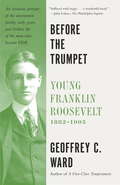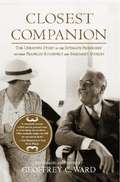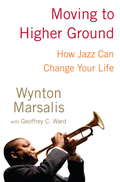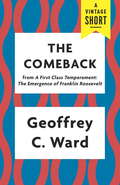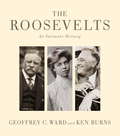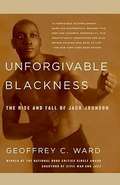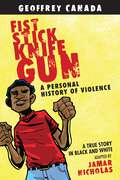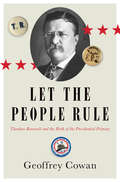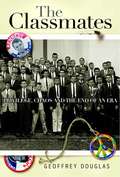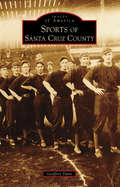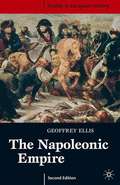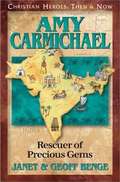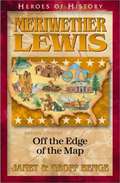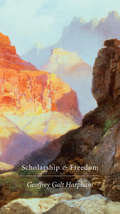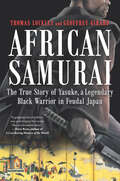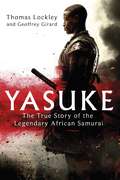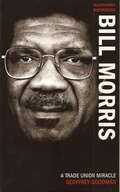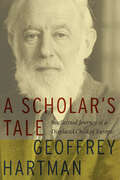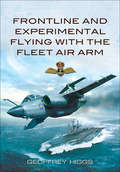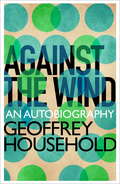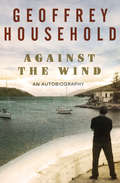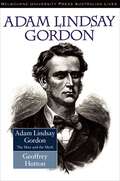- Table View
- List View
Before the Trumpet: Young Franklin Roosevelt, 1882-1905
by Geoffrey C. WardBefore Pearl Harbor, before polio and his entry into politics, FDR was a handsome, pampered, but strong-willed youth, the center of a rarefied world. In Before the Trumpet, the award-winning historian Geoffrey C. Ward transports the reader to that world--Hyde Park on the Hudson and Campobello Island, Groton and Harvard and the Continent--to recreate as never before the formative years of the man who would become the 20th century's greatest president. Here, drawn from thousands of original documents (many never previously published), is a richly-detailed, intimate biography, its central figure surrounded by a colorful cast that includes an opium smuggler and a pious headmaster; Franklin's distant cousin, Theodore and his remarkable mother, Sara; and the still-more remarkable young woman he wooed and won, his cousin Eleanor. This is a tale that would grip the reader even if its central character had not grown up to be FDR.
Closest Companion: The Unknown Story of the Intimate Friendship Between Franklin Roosevelt and Margaret Suckley
by Geoffrey C. WardThe highly acclaimed, remarkably intimate, and surprisingly revealing secret diary of the woman who spent more private time with FDR than any other person during his years in the White house. At once a love story and a major contribution to history, it offers dramatic new insights into FDR--both the man and the president. <P> * Intimate portrait of a president: FDR trusted Margaret "Daisy" Suckley completely--she was allowed to photograph him in his wheelchair, was privy to wartime secrets, and documented his failing health in great detail. <P> * Major contribution to history: Daisy's diary offers unique insights into FDR's relationship with Winston Churchill and other wartime leaders, his decision to run for an unprecedented fourth term, and his hopes for the postwar world.
Moving to Higher Ground
by Geoffrey C. Ward Wynton MarsalisIn this beautiful book, Pulitzer Prize—winning musician and composer Wynton Marsalis draws upon lessons he’s learned from a lifetime in jazz–lessons that can help us all move to higher ground. With wit and candor he demystifies the music that is the birthright of every American and demonstrates how a real understanding of the central idea of jazz–the unique balance between self-expression and sacrifice for the common good exemplified on the bandstand–can enrich every aspect of our lives, from the bedroom to the boardroom, from the schoolroom to City Hall. Along the way, Marsalis helps us understand the life-changing message of the blues, reveals secrets about playing–and listening–and passes on wisdom he has gleaned from working with three generations of great musicians. Illuminating and inspiring, Moving to Higher Ground is a master class on jazz and life, conducted by a brilliant American artist.
The Comeback
by Geoffrey C. WardAn eBook short.Franklin Roosevelt contracted polio in the summer of 1921, resulting in permanent paralysis from the waist down. One year later, he went back to work. Noted historian Geoffrey C. Ward, winner of the National Book Critics Circle Award and the Parkman Prize and finalist for the Pulitzer Prize, who is himself a polio survivor, investigates the courage and character of the man who became the greatest president of the twentieth century. "The Comeback," a selection from A First-Class Temperament, the second volume in Ward's monumental biography that began with Before the Trumpet, is the story of one extraordinary man's struggle to regain his feet and reenter public life. Before his illness, FDR's political future had seemed bright. He knew that pity was poison, that if the public understood the extent of his disability his career would be at an end. Roosevelt, therefore, had to teach himself the impossible: how to walk--or seem to walk--again. This is that journey, following the future president from his disastrous attempt to return to his law office to his triumphant march down the aisle at the 1924 Democratic National Convention, where, leaning on his crutches, he delivered the triumphant "Happy Warrior" speech for ill-fated presidential candidate Al Smith and was hailed as a hero. It was FDR's new beginning.
The Roosevelts
by Geoffrey C. Ward Ken BurnsA vivid and personal portrait of America's greatest political family and its enormous impact on our nation--the companion volume to the seven-part PBS documentary series With 796 photographs, some never before seen The authors of the acclaimed and best-selling The Civil War, Jazz, The War, and Baseball present an intimate history of three extraordinary individuals from the same extraordinary family--Theodore, Eleanor, and Franklin Delano Roosevelt. Geoffrey C. Ward, distilling more than thirty years of thinking and writing about the Roosevelts, and the acclaimed filmmaker Ken Burns help us understand for the first time that, despite the fierce partisanship of their eras, the Roosevelts were far more united than divided. All the history the Roosevelts made is here, but this is primarily an intimate account, the story of three people who overcame obstacles that would have undone less forceful personalities. Theodore Roosevelt would push past childhood frailty, outpace depression, survive terrible grief--and transform the office of the presidency. Eleanor Roosevelt, orphaned and alone as a child, would endure her husband's betrayal, battle her own self-doubts, and remake herself into the most consequential first lady in American history--and the most admired woman on earth. And Franklin Roosevelt, born to privilege and so pampered that most of his youthful contemporaries dismissed him as a charming lightweight, would summon the strength to lead the nation through the two greatest crises since the Civil War, though he could not take a single step unaided. The three were towering personalities, but The Roosevelts shows that they were also flawed human beings who confronted in their personal lives issues familiar to all of us: anger and the need for forgiveness, courage and cowardice, confidence and self-doubt, loyalty to family and the need to be true to oneself. This is the story of the Roosevelts--no other American family ever touched so many lives.From the Hardcover edition.
Unforgivable Blackness: The Rise and Fall of Jack Johnson
by Geoffrey C. WardIn this vivid biography Geoffrey C. Ward brings back to life the most celebrated — and the most reviled — African American of his age. Jack Johnson battled his way out of obscurity and poverty in the Jim Crow South to win the title of heavyweight champion of the world. At a time when whites ran everything in America, he took orders from no one and resolved to live as if color did not exist. While most blacks struggled simply to exist, he reveled in his riches and his fame, sleeping with whomever he pleased, to the consternation and anger of much of white America. Because he did so the federal government set out to destroy him, and he was forced to endure prison and seven years of exile. This definitive biography portrays Jack Johnson as he really was--a battler against the bigotry of his era and the embodiment of American individualism.
Fist Stick Knife Gun: A Personal History of Violence
by Geoffrey CanadaLong before U.S. News and World Report named him one of America's Best Leaders and Oprah Winfrey called him "an angel from God," Geoffrey Canada was a small, vulnerable, scared boy growing up in the South Bronx. Canada's world was one where "sidewalk" boys learned the codes of the block and were ranked through the rituals of fist, stick, and knife. Then the streets changed, and the stakes got even higher. In this candid and riveting memoir, Canada relives a childhood in which violence stalked every street corner. "If you wonder how a fourteen-year-old can shoot another child his own age in the head and then go home to dinner," Canada writes, "you need to know you don't get there in a day, or week, or month. It takes years of preparation to be willing to commit murder, to be willing to kill or die for a corner, a color, or a leather jacket."
Special Delivery: The life of the celebrated British obstetrician
by Geoffrey ChamberlainProfessor William Nixon directed the obstetric unit at University College Hospital, London from 1946 to 1966. These were innovative times in obstetrics and gynaecology, with Nixon one of the more recognized innovators. Much that is now accepted as normal good practice was pioneered by Nixon, and today's management of pregnant women and their babies stems from his work. His principal aim was to change the art of midwifery into the science of obstetrics; he appointed women doctors when they were still frowned upon in many hospitals; and he was adamant about the right of a woman to terminate her pregnancy if that was the right thing for her and her child. This is a fascinating glimpse into the life of an innovating clinician who did so much to improve the lives of women, and will be of interest to everyone involved in women's health and childbirth.
Let the People Rule: Theodore Roosevelt and the Birth of the Presidential Primary
by Geoffrey CowanThe exhilarating, prescient story of the four-month campaign that changed American politics forever. Let the People Rule tells the exhilarating story of the four-month campaign that changed American politics forever. In 1912 Theodore Roosevelt came out of retirement to challenge his close friend and handpicked successor, William Howard Taft, for the Republican Party nomination. To overcome the power of the incumbent, TR seized on the idea of presidential primaries, telling bosses everywhere to “Let the People Rule.” The cheers and jeers of rowdy supporters and detractors echo from Geoffrey Cowan’s pages as he explores TR’s fight-to-the-finish battle to win popular support. After sweeping nine out of thirteen primaries, he felt entitled to the nomination. But the party bosses proved too powerful, leading Roosevelt to walk out of the convention and create a new political party of his own. Using a trove of newly discovered documents, Cowan takes readers inside the colorful, dramatic, and often mean-spirited campaign, describing the political machinations and intrigue and painting indelible portraits of its larger-than-life characters. But Cowan also exposes the more unsavory parts of TR’s campaign: seamy backroom deals, bribes made in TR’s name during the Republican Convention, and then the shocking political calculation that led TR to ban any black delegates from the Deep South from his new “Bull Moose Party.” In this utterly compelling work, Cowan illuminates lessons of the past that have great resonance for American politics today.
The Classmates: Privilege, Chaos, and the End of an Era
by Geoffrey DouglasFifty years ago, in the fall of 1957, two thirteen-year-old boys were enrolled at an elite, boys-only New England boarding school. One of them, descended from wealth and eminence, would go on to Yale, then to a career as a navy officer and Vietnam war hero, and finally to the U.S. Senate, from where he would fall just short of the White House. The other was a scholarship student, a misfit giant of a boy from a Pennsylvania farm town who would suffer shameful debasements at the hands of his classmates, then go on to a solitary and largely anonymous life as a salesman of encyclopedias and trailer parts--before dying, alone, twelve months after his classmate's narrow loss on Election Day 2004. It is around these two figures, John Kerry and a boy known here only as Arthur, the bookends of a class of one hundred boys, that Geoffrey Douglas--himself a member of that boarding-school class--builds this remarkable memoir. His portrait of their lives and the lives of five others in that class--two more Vietnam veterans with vastly divergent stories, a federal judge, a gay New York artist who struggled for years to find his place in the world, and Douglas himself--offers a memorable look back to a generation caught between the expectations of their fathers and the sometimes terrifying pulls of a society driven by war, defiance, and self-doubt. The class of 1962 was not so different from any other, with its share of swaggerers and shining stars, outcasts and scholarship students. Its distinction was in its timing: at the precise threshold of the cultural and political upheavals of the late 1960s. The world these boys had been trained to enter and to lead, a world very similar to their fathers', would be exploded and recast almost at the moment of their entrance--forcing choices whose consequences were sometimes lifelong. Douglas's chronicle of those times and choices is both a capsule history of an era and a literary tour de force.
Sports of Santa Cruz County (Images of America)
by Geoffrey DunnIts inviting climate, enticing rugged mountains, and welcoming beaches have always made Santa Cruz County a haven for athletic activities. A wide variety of sporting endeavors, some beyond the norm, have called Santa Cruz home over the decades. In the 19th century, Santa Cruz served as a springboard for modern surfing. It was an early bastion for organized baseball, too, beginning in the 1860s, and it was home to a series of professional teams as early as the 1870s. Other colorful athletic activities took place here (including fire hose teams, long-distance walking, and bicycling), along with more traditional American sports like basketball, football, boxing, and tennis. The region boasts of a strong tradition of women athletes as well, in particular Marion Hollins, perhaps the greatest all-around woman athlete of the early 20th century.
The Napoleonic Empire
by Geoffrey EllisWas Napoleon the 'heir' of the French Revolution, the great consolidator of its reforms, or did he distort and even abandon its principles? What were the aims and effects of Napoleonic rule in France and in conquered Europe more widely? This second edition of The Napoleonic Empire offers a critical reassessment of these central issues and provides a fresh synthesis of the most important research during the past forty years. Beginning with Napoleon's inheritance, Geoffrey Ellis balances the conflicting evidence for change or continuity over the years from the Revolutionary upheaval to the height of the 'Grand Empire'. The new edition: - covers the administrative, military, social and economic aspects of the subject - redefines the whole impact of Napoleonic imperialism in both the short and longer term - offers more extensive coverage of Napoleon's treatment of the annexed lands and subject states of his Empire, as well as of military conscription, desertion, and the role of the Gendarmerie in the war against brigands and military defaulters - provides an expanded discussion of the institutional legacy of Napoleonic rule in France and Europe With an up-dated and more comprehensive bibliography, this thoroughly revised text is an invaluable guide to Napoleon's Europe and is ideal for specialist and general readers alike.
Christian Heroes: Rescuer of Precious Gems
by Janet Hazel Benge Geoffrey Francis Benge"Amy Carmichael stood on the deck of the steamer, waving good-bye once again to her old friend Robert Wilson. How could she have known she would never see him or the British Isles again? Amy was certain God had called her to India. Indeed! India would be home for the rest of her life." Amy's life was marked by a simple, determined obedience to God, regardless of circumstances or consequences. Her story and legacy are stunning reminders of the impact of one person who will fear God and nothing else. Driven by love and compassion, and sustained by faith and determination, Amy Carmichael defied the cruel barriers of India's caste system. The story of this young woman from Northern Ireland is a brilliant, sparkling example of God's love generously poured out to "the least of these among us."
Meriwether Lewis: Off the Edge of the Map (Heroes of History)
by Janet Hazel Benge Geoffrey Francis BengeA biography of the co-leader of the 1804-1806 Lewis and Clark expedition into the unmapped American West, including his early life and the formation of the Corps of Discovery.
Scholarship and Freedom
by Geoffrey Galt HarphamA powerful and original argument that the practice of scholarship is grounded in the concept of radical freedom, beginning with the freedoms of inquiry, thought, and expression. Why are scholars and scholarship invariably distrusted and attacked by authoritarian regimes? Geoffrey Galt Harpham argues that at its core, scholarship is informed by an emancipatory agenda based on a permanent openness to the new, an unlimited responsiveness to evidence, and a commitment to conversion. At the same time, however, scholarship involves its own forms of authority. As a worldly practice, it is a struggle for dominance without end as scholars try to disprove the claims of others, establish new versions of the truth, and seek disciples. Scholarship and Freedom threads its general arguments through examinations of the careers of three scholars: W. E. B. Du Bois, who serves as an example of scholarly character formation; South African Bernard Lategan, whose New Testament studies became entangled on both sides of his country’s battles over apartheid; and Linda Nochlin, whose essay “Why Have There Been No Great Women Artists?” virtually created the field of feminist art history.
African Samurai: The True Story of Yasuke, a Legendary Black Warrior in Feudal Japan
by Geoffrey Girard Thomas LockleyThis biography of the first foreign-born samurai and his journey from Africa to Japan is “a readable, compassionate account of an extraordinary life” (The Washington Post).When Yasuke arrived in Japan in the late 1500s, he had already traveled much of the known world. Kidnapped as a child, he had ended up a servant and bodyguard to the head of the Jesuits in Asia, with whom he traversed India and China learning multiple languages as he went. His arrival in Kyoto, however, literally caused a riot. Most Japanese people had never seen an African man before, and many of them saw him as the embodiment of the black-skinned Buddha. Among those who were drawn to his presence was Lord Nobunaga, head of the most powerful clan in Japan, who made Yasuke a samurai in his court. Soon, he was learning the traditions of Japan’s martial arts and ascending the upper echelons of Japanese society.In the four hundred years since, Yasuke has been known in Japan largely as a legendary, perhaps mythical figure. Now African Samurai presents the never-before-told biography of this unique figure of the sixteenth century, one whose travels between countries and cultures offers a new perspective on race in world history and a vivid portrait of life in medieval Japan.“Fast-paced, action-packed writing. . . . A new and important biography and an incredibly moving study of medieval Japan and solid perspective on its unification. Highly recommended.” —Library Journal (starred review)“Eminently readable. . . . a worthwhile and entertaining work.” —Publishers Weekly“A unique story of a unique man, and yet someone with whom we can all identify.” —Jack Weatherford, New York Times–bestselling author of Genghis Khan
Yasuke: The true story of the legendary African Samurai
by Geoffrey Girard Thomas LockleyWARRIOR. SAMURAI. LEGEND.The remarkable life of history's first foreign-born samurai, and his astonishing journey from Northeast Africa to the heights of Japanese society.The man who came to be known as Yasuke arrived in Japan in the 16th century, an indentured mercenary arriving upon one of the Portuguese ships carrying a new language, a new religion and an introduction to the slave trade. Curiously tall, bald, massively built and black skinned, he was known as a steadfast bodyguard of immense strength and stature, and swiftly captured the interest, and thence the trust, of the most powerful family in all of Japan. Two years later, he vanished.Yasuke is the story of a legend that still captures the imagination of people across the world. It brings to life a little known side of Japan - a gripping narrative about an extraordinary figure in a fascinating time and place.
Bill Morris: A Trade Union Miracle (Black Amber Inspirations Ser.)
by Geoffrey GoodmanWhen, in 1991, Bill Morris became General Secretary of the Transport and General Workers Union - then the largest trade union in the country - it marked a huge break in the culture of British working class attitudes towards racial discrimination. The first black immigrant to take the top job in any British trade union; the first black immigrant to join the government board of the Bank of England; the first black immigrant to become president of the Trade Union Congress. He was as he says in his book, 'always a first' in this respect.This is the story of his rise to the top of British public life after arriving in Birmingham in the mid 1950s, aged 16, to join his mother who had come to England a short time earlier. Bill Morris was born and brought up in a small rural village about sixty miles from the Jamaican capital, Kingston. As a child his overwhelming ambition was to become a professional cricketer and play for the West Indies; he has had to put up with what he regards as the lesser honour of sitting on the England and Wales Cricket Board at Lord's. His story is a fascinating account of a unique rise from the shop floor to national status.
Bill Morris: A Trade Union Miracle (Black Amber Inspirations Ser.)
by Geoffrey GoodmanWhen, in 1991, Bill Morris became General Secretary of the Transport and General Workers Union - then the largest trade union in the country - it marked a huge break in the culture of British working class attitudes towards racial discrimination. The first black immigrant to take the top job in any British trade union; the first black immigrant to join the government board of the Bank of England; the first black immigrant to become president of the Trade Union Congress. He was as he says in his book, 'always a first' in this respect.This is the story of his rise to the top of British public life after arriving in Birmingham in the mid 1950s, aged 16, to join his mother who had come to England a short time earlier. Bill Morris was born and brought up in a small rural village about sixty miles from the Jamaican capital, Kingston. As a child his overwhelming ambition was to become a professional cricketer and play for the West Indies; he has had to put up with what he regards as the lesser honour of sitting on the England and Wales Cricket Board at Lord's. His story is a fascinating account of a unique rise from the shop floor to national status.
A Scholar's Tale: Intellectual Journey of a Displaced Child of Europe
by Geoffrey HartmanFor more than fifty years, Geoffrey Hartman has been a pivotal figure in the humanities. In his first book, in 1954, he helped establish the study of Romanticism as key to the problems of modernity. Later, his writings were crucial to the explosive developments in literary theory in the late seventies, and he was a pioneer in Jewish studies, trauma studies, and studies of the Holocaust. At Yale, he was a founder of its Judaic Studies program, as well as of the first major video archive for Holocaust testimonies.Generations of students have benefited from Hartman’s generosity, his penetrating and incisive questioning, the wizardry of his close reading, and his sense that the work of a literary scholar, no less than that of an artist, is a creative act. All these qualities shine forth in this intellectual memoir, which will stand as his autobiography. Hartman describes his early education, uncanny sense of vocation, and development as a literary scholar and cultural critic. He looks back at how his career was influenced by his experience, at the age of nine, of being a refugee from Nazi Germany in the Kindertransport. He spent the next six years at school in England, where he developed his love of English literature and the English countryside, before leaving to join his mother in America.Hartman treats us to a “biobibliography” of his engagements with the major trends in literary criticism. He covers the exciting period at Yale handled so controversially by the media and gives us vivid portraits, in particular, of Harold Bloom, Paul de Man, and Jacques Derrida.All this is set in the context of his gradual self-awareness of what scholarship implies and how his personal displacements strengthened his calling to mediate between European and American literary cultures. Anyone looking for a rich, intelligible account of the last half-century of combative literary studies will want to read Geoffrey Hartman’s unapologetic scholar’s tale.
Frontline and Experimental Flying With the Fleet Air Arm
by Geoffrey HiggsThe first Royal Navy pilot to fly transatlantic non-stop (in a Buccaneer) describes his thirty-five-year career in the Fleet Air Arm and as an Empire Test Pilot. The spectacle of Alan Cobham&’s Flying Circus and the Fleet at anchor in Weymouth inspired the author&’s lifelong passion for aeroplanes, flying and the Royal Navy. World War Two provided the opportunity to fulfil his ambition and at eighteen he volunteered for the Fleet Air Arm as a pilot. Training in Canada began a Naval flying career that spanned thirty-years. Front line squadron service, embarked on aircraft carriers was followed by qualification as a flying instructor. Selection for the Empire Test Pilots School at Farnborough and qualification as an experimental Test Pilot changed the direction of his naval career. In all he flew nearly one hundred types of aircraft and carried out close to a thousand deck landings. Initial flight testing of several new naval aircraft, as well as research flying in support of the development of aircraft such as the English Electric Lightning and Concorde added to a unique career. Such a long and varied period of flying was not without the inevitable mishaps. A near catastrophic catapult launch of a new naval aircraft, the jamming of the power control system in a research aircraft and hazardous flying through tropical storms at supersonic speeds to determine safety factors for Concorde&’s intended Far East route were some of the dangers of flying at the cutting edge. As pilot, he flew the first Royal Naval aircraft to cross the Atlantic non-stop without in-flight refuelling or navigational aids. He describes the fascinating ten-day flight from Croydon to Rangoon across Europe, the Middle East, Pakistan and India to deliver a Percival Provost trainer to the Burmese Air Force.Praise for Frontline and Experimental Flying with the Fleet Air Arm &“Follow Higgs from one cockpit/conference room/country to another. You&’ll be as surprised as he is that he lived to tell about some of these adventures.&” —Speedreaders &“This hefty [book] chronicles . . . a life crammed with flying all types of aircraft, mostly shipboard, and the inevitable mishaps. . . . A good read, particularly for those of us who soak up anything to do with ships and aircraft. The shipboard accounts of catapult trials, amongst other sections, are gripping, and the times in Singapore and the Far East add to the appeal, as do the various accounts of life alongside the Americans. Geoffrey Higgs flew nearly 100 different types of aircraft in his career and his love of flying shines through the pages.&” —Alan Rawlinson
Against the Wind
by Geoffrey HouseholdGeoffrey Household's, author of ROGUE MALE, unconventional amusing and exciting autobiography.Ever since the publication of ROGUE MALE, Geoffrey Household has been known in the English-reading world for his audacious and unorthodox tales of adventure. Now, in his autobiography, AGAINST THE WIND, he tells us the story of his own life, sharing with us the background and the experiences from which he emerged as a writer. A gradaute from Oxford he then worked as an apprentice-clerk in the Ottoman Bank, as a banana salesman in Spain, and he served in British Intelligence during World War II in Romania, Greece and the Middle East. In the final chapters he speaks of the writer's craft and of his personal aspirations.
Against the Wind: An Autobiography
by Geoffrey HouseholdIn this fascinating and uniquely colorful autobiography, a twentieth-century master of suspense fiction candidly examines his extraordinary life, times, and art One of the twentieth century&’s most respected writers of adventure and espionage thrillers, Geoffrey Household penned more than twenty novels and short story collections in a career that spanned more than fifty years—and lived a life as eventful and surprising as his acclaimed, pulse-pounding fiction. In Against the Wind, the author whom the New York Times credits with having &“helped to develop the suspense story into an art form&” shares his remarkable personal history with candor and wit, while exploring the creative process and his roles as a husband, father, bestselling popular artist, and citizen of his uniquely eventful time. From his years as a student at the University of Oxford to his early career in the cutthroat world of international business and finance to his patriotic service with British intelligence during World War II, with perilous postings in Greece, Romania, and the Middle East that later informed his thrilling fiction, Household evocatively recalls a peripatetic life lived purposefully and often dangerously in some of the most colorful and fascinating regions of the globe.
Adam Lindsay Gordon
by Geoffrey HuttonScottish aristocrat, rebellious youth, expert horseman, club-man, MP and poet-beneath the image of rake and hell-raiser, Adam Lindsay Gordon remained a conservative, frustrated with his failure to achieve the success he had expected from life. He finished his passionate life as dramatically as he had lived it, in a mixture of glory and outrage. A flawed hero, he was acclaimed as Australia's National Poet in 1933. Geoffrey Hutton examines this tragic and romantic character as a man, and a poet against his culture and his times and the process of his later apotheosis. 'He wrote imperfectly in Australia those poems that in England he might have made perfect.'–Oscar Wilde
